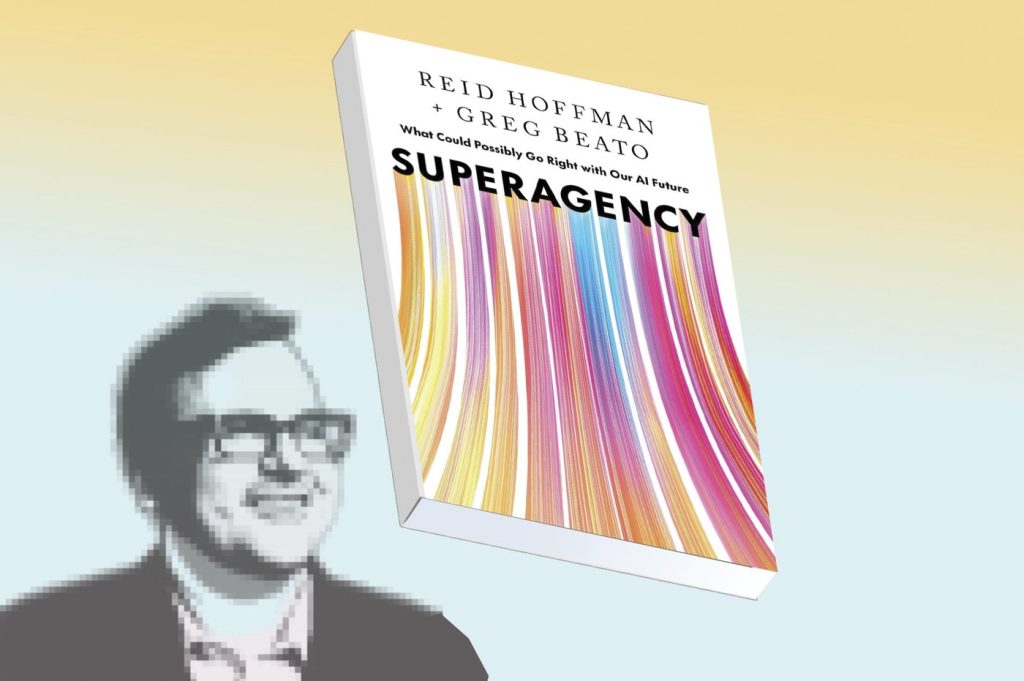Reid Hoffman, the founder of LinkedIn, has deep ties to Silicon Valley, having been born in Palo Alto, California, in August 1967, near Stanford University. During his college years in the 1980s, he forged a friendship with Peter Thiel, which later led them to co-found PayPal in the late 1990s. This venture also included other notable figures who would become major players in the tech industry, collectively known as the "PayPal Mafia," which featured influences like Elon Musk, Jeremy Stoppelman, and the co-founders of YouTube, Chad Hurley and Steve Chen.
Currently, Hoffman is valued at approximately $2.6 billion and is actively involved in the burgeoning field of artificial intelligence (AI). He has invested in pioneering companies like OpenAI, the creator of ChatGPT, and Inflection. Contrasting with some tech leaders who express concerns about AI's potential to threaten humanity, Hoffman has co-authored a book titled “Superagency”, advocating an optimistic outlook on AI's future. In a recent interview with The Associated Press, he shared his thoughts on this rapidly evolving technology.
When asked if humanity is creating something smarter than itself through AI, Hoffman asserted that a form of superintelligence already exists and will continue to develop. He emphasized the importance of understanding both the benefits and challenges that accompany this growth. The aim of his book is to highlight positive design principles that can lead to favorable outcomes as society adapts to these technological advancements.
On whether superintelligent AI might appear omniscient, Hoffman expressed that AI agents can serve effectively as coaches and advisors. He emphasized their potential as tutors in various domains, contributing positively to human development by providing infinitely patient guidance. He likened this interaction to a “Consult the Oracle” scenario, where AI agents could facilitate personal growth.
However, Hoffman acknowledged the possibility of individuals becoming socially isolated as they grow attached to AI companions. He noted that this trend mirrors past behaviors related to television or the internet. He described efforts made at Inflection, where the AI agent, Pi, encourages users to engage with their friends, emphasizing the design's role in promoting human connections.
Reflecting on the broader implications of AI becoming more human-like, Hoffman remarked that humanity is revealed in how technology is integrated into daily life. He emphasized that current communication methods, like using platforms such as Zoom, illustrate this integration of technology and humanity.
Shifting focus to political concerns, Hoffman responded to queries about potential backlash from President Trump due to his support of Kamala Harris during the previous election. He expressed his hope that the incoming administration would adopt a positive agenda, although he refrained from making predictions about future political dynamics. Instead, he aims to concentrate on building and financing innovative AI companies in the following year.
When asked about the surprising level of support that President Trump has received from several technology billionaires, including Elon Musk and Marc Andreessen, Hoffman indicated that support from pro-cryptocurrency advocates was anticipated. He highlighted that the current administration has displayed a more negative stance toward cryptocurrency and tech innovation compared to previous administrations.
On whether his former PayPal colleagues are engaged in political maneuvering, Hoffman commented on Silicon Valley's common belief in technology's role in progress. He expressed uncertainty about the extent of political strategies within the industry but reaffirmed their shared mission to realize technology's potential under the Trump administration.
Hoffman also agreed with Trump's supporters on the need to relax the stringent regulations imposed during President Biden's administration to foster technological innovation. Additionally, addressing concerns from AI pioneers like Geoffrey Hinton, he compared the risks associated with AI to everyday dangers, like driving. He argued that if perceived risks are of a manageable level, it is prudent to focus efforts on protective measures without succumbing to undue alarmism.










